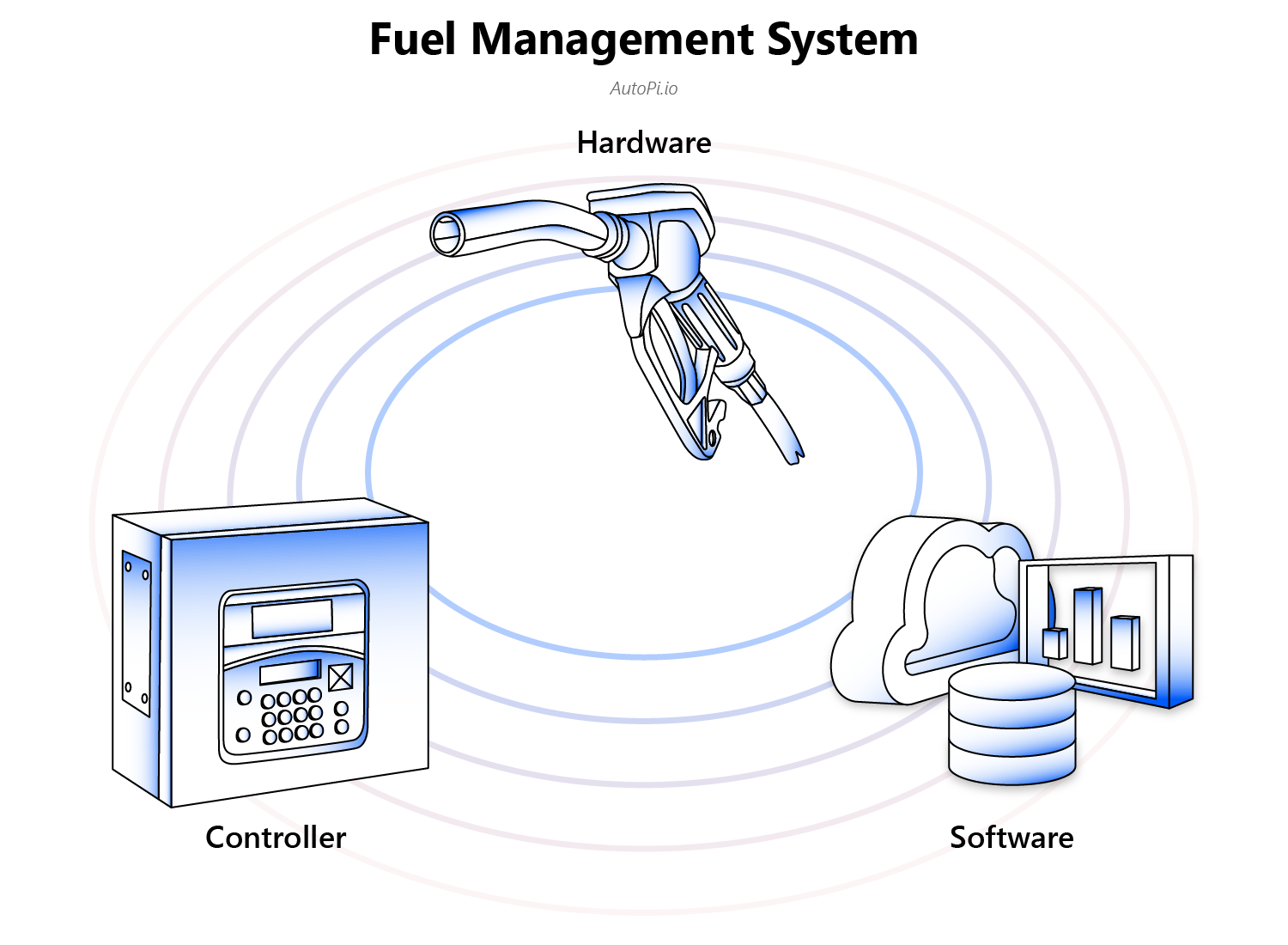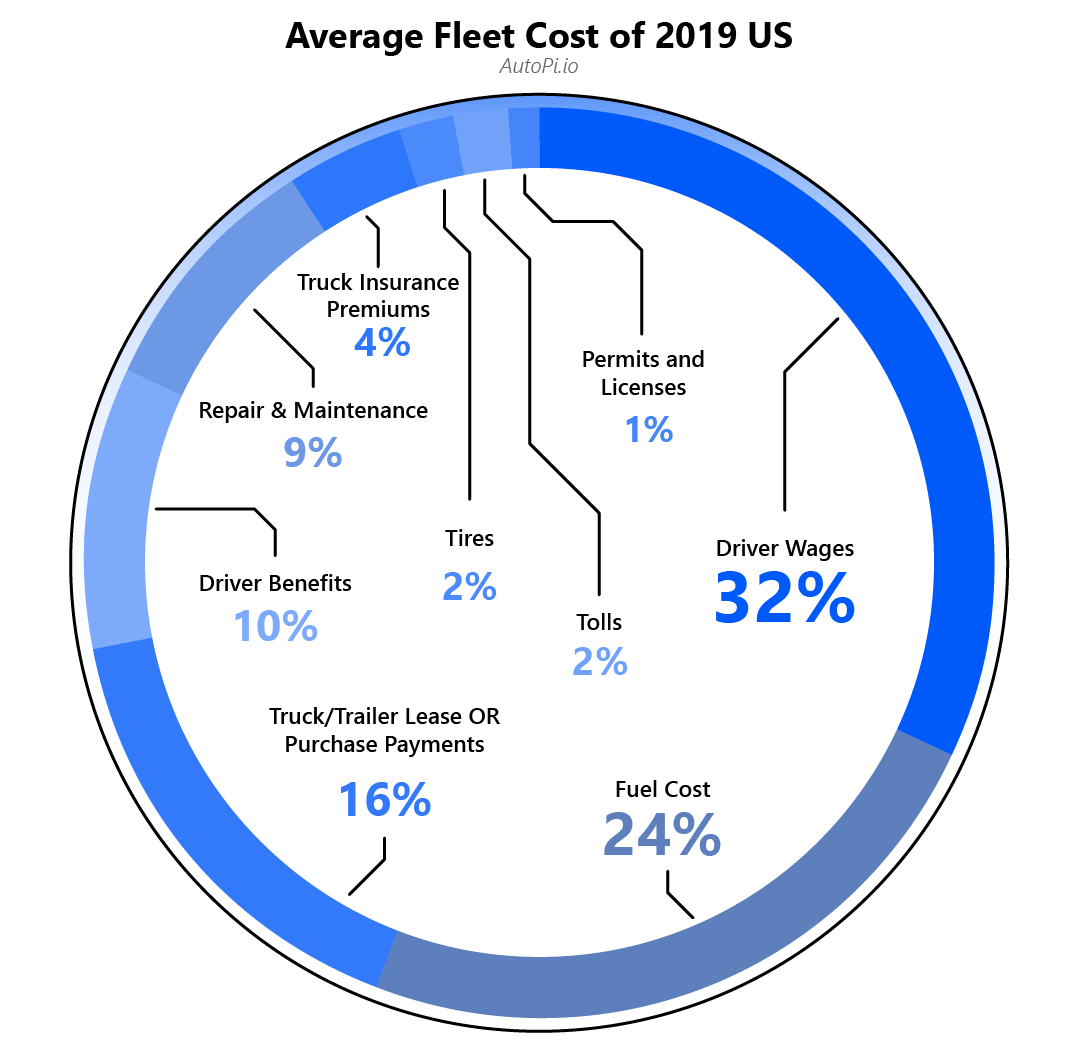What is Fuel Management Systems?
Fuel management system plays an indispensable role in the fleet management industry. Properly organized, fuel management can save up to 10% on fuel expenses, significantly impacting the profitability of fleets. That's why every fleet manager should optimize fuel usage and monitor it diligently.
Understanding Fuel Management Systems
Fuel management systems are designed to monitor and regulate fuel consumption within a vehicle of fleet. They use GPS technology to generate comparison graphs based on the distance traveled by each vehicle, providing invaluable data to fleet managers. This detailed monitoring of fuel transactions helps you identify irregularities like higher fuel consumption due to improper tire pressure or erroneous operation of heat burners, effectively reducing fuel waste.

Moreover, these systems expose fuel draining, fuel fraud, and fuel overconsumption, assisting in eliminating the menace of fuel theft that has plagued the industry.
The Profound Impact of Fuel Management Systems
In industries such as commercial trucking and green transportation, fuel management systems are more than just an investment; they're strategic tools to enhance fuel efficiency, reduce costs, and promote environmental sustainability. They equip fleet operators with real-time data, enabling them to minimize downtime, maximize profits, and boost operational efficiency.
By effectively monitoring fleet fuel consumption, these systems enable fleets to operate at peak performance, optimizing routes and schedules. They also play a significant role in promoting eco-friendly transport solutions by reducing CO2 emission and encouraging the usage of alternative fuel.
Analyzing Fuel Prices
Fuel prices remained a significant line-item expenditure in 2019, despite a decrease from 2018. Various factors influence fuel costs. Fleet size, for example, has a profound effect. Larger fleets, with more market strength, can negotiate better price arrangements with fuel suppliers. They also tend to use newer, more fuel-efficient trucks, lowering the cost of fuel per mile.

The Value Proposition of Fuel Management Systems
Incorporating a fuel management system into your fleet management software delivers numerous benefits, especially in terms of increased data precision, lower fuel costs, and fraud reduction. Real-time monitoring of fuel level and vehicle maintenance is possible with such systems, leading to improved driver behavior and fuel economy.
Fuel Management System: A Vital Tool for Fleet Managers
Fuel management systems serve as a vital tool in the fleet management industry, particularly in managing fuel usage and tracking fuel transactions. These systems play a critical role in both monitoring and reducing fuel costs. They do so by providing fleet managers with comprehensive and real-time data about fuel levels, consumption patterns, and vehicle maintenance schedules.
Deep Dive into Fuel Efficiency and Economy
Fuel efficiency and economy are two of the main factors driving the adoption of fuel management systems. By monitoring the fuel efficiency of each vehicle, fleet managers can identify instances of fuel waste and overconsumption, as well as devise strategies to reduce these. Moreover, fuel management software can help fleet managers to develop more efficient driving routes, thus promoting better driver behavior management and boosting overall fuel economy.
Tackling Fuel Fraud with Fuel Management Systems
Fuel theft and fraud are significant concerns in the fleet industry. This is where a fuel management system comes into play. By keeping a close eye on fuel inventory and purchases, these systems can detect inconsistencies and help fleet managers address security risks promptly.
The Importance of Regular Vehicle Maintenance
Regular vehicle maintenance is another essential aspect that a fuel management system can monitor. By tracking maintenance schedules and alerting fleet managers when service is due, these systems help ensure that vehicles run at their peak efficiency, which in turn helps reduce fuel consumption and extend the life of the fleet.
CO2 Emission and The Role of Fuel Management Systems
As businesses become more conscious of their environmental footprint, fuel management systems also offer a solution to track and reduce CO2 emissions. By optimizing fuel usage and promoting efficient driving habits, these systems help fleets lower their overall emissions, contributing to a greener and more sustainable future.
Commercial Fleet Management and Fuel Dispenser Monitoring
For commercial fleets, fuel management systems can also monitor fuel dispenser usage. By keeping an accurate record of all fuel transactions, these systems help ensure that each drop of fuel is accounted for and used efficiently.
Integration with Fleet Management Software
Modern fuel management systems can be integrated into broader fleet management software. This integration provides a comprehensive overview of fleet operations, from route planning to fuel consumption monitoring and maintenance scheduling.
AutoPi TMU Device: A Comprehensive Solution for Fuel Management
The AutoPi TMU device is an excellent example of a comprehensive fuel management solution. It provides real-time updates on fuel data, helping fleet managers make informed decisions to enhance efficiency, reduce costs, and ensure the sustainability of their operations.
In conclusion, a robust fuel management system is an essential asset for any fleet manager. It not only helps control fuel costs but also improves overall fleet performance, promotes sustainability, and boosts profitability. If you haven't yet adopted a fuel management system, now is the perfect time to explore the myriad benefits it offers.
Does a fuel management system seem as a great investing for your business? Then do not hesitate to get in touch with us, and we can have a talk.




